Research Symposium
22nd annual Undergraduate Research Symposium
Jose Brouwer Poster Session 4: 12:30-1:15/Poster #51

BIO
I'm Jose Brouwer and I was born in the Dominican Republic. I moved to the United States when I was 15 and I am a Computer Science Major.
Simulating Unmanned Ground Vehicles Traversing Rough Terrain
Authors: Jose Brouwer, Christian HubickiStudent Major: Computer Science BS
Mentor: Christian Hubicki
Mentor's Department: Optimal Robotics Lab Mentor's College: College of Engineering Co-Presenters:
Abstract
Traversing certain types of terrain with unmanned Ground Vehicles (UGV) can be an arduous task. Some are not suited to cover certain terrains whatsoever. The project seeks to further develop and simplify the controls of UGVs designed to navigate these rough/inaccessible terrains. Utilizing code and simulations produced by graduate students in the Optimal Robotics Lab, these simulations were optimized to be more user friendly and accessible. These optimizations involved the tweaking and redesign of certain features to reduce the interface complexity. So far, incompatibility issues have prevented major progress from being made towards the goal of optimizing these simulations. Once these issues are solved, progress is expected to be more abundant.
Keywords: Computer Science, Mechanical Engineering, Robotics
22nd annual Undergraduate Research Symposium
Keely Paul Poster Session 3: 11:00- 11:45/Poster #14
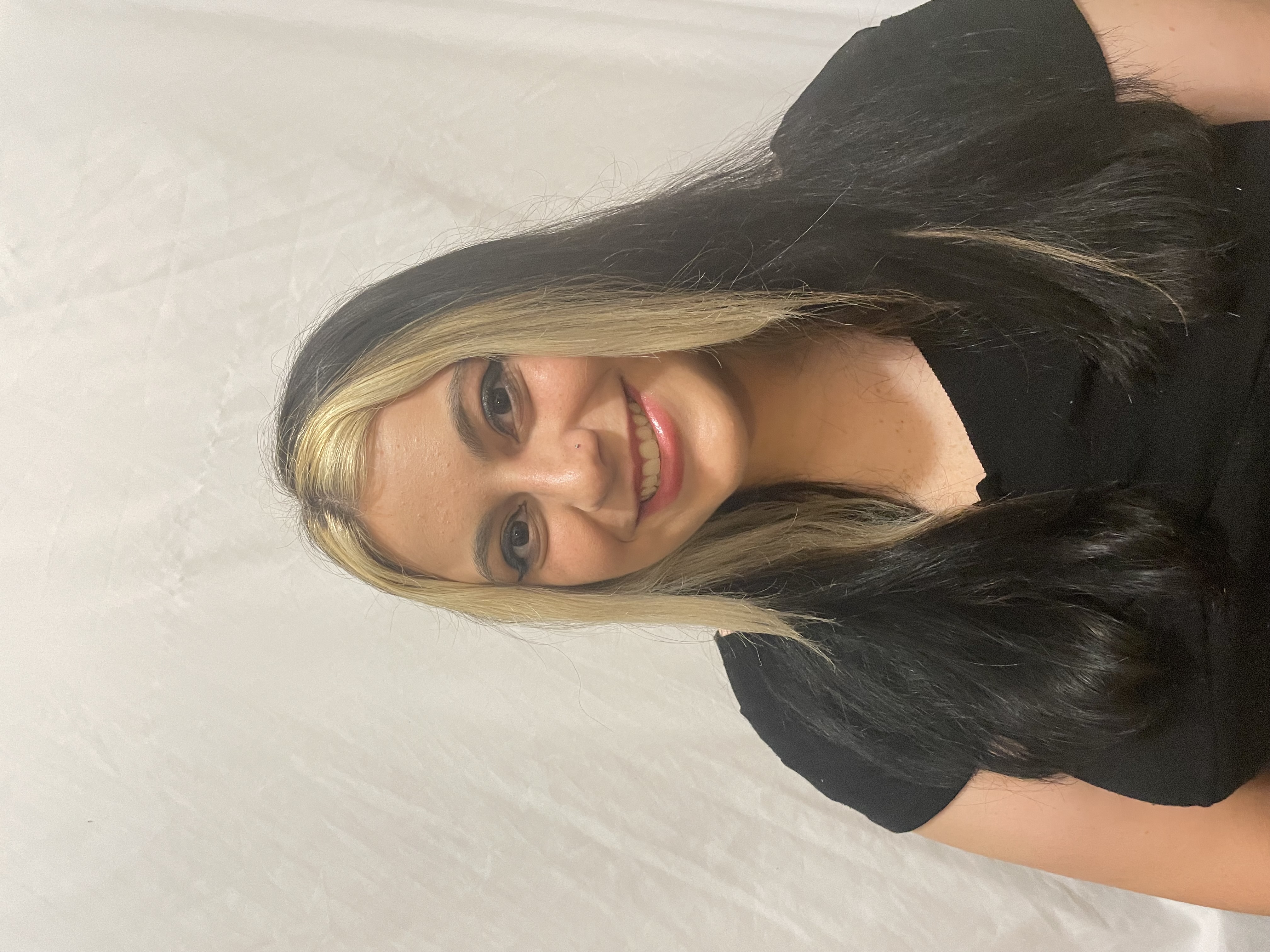
BIO
My name is Keely Paul and I am a sophomore at FSU participating in the Undergraduate Research Program. Following my undergraduate degree, I plan to attend law school. My research interests revolve around the plausibility of fault-tolerant quantum computing and optoelectronic technology.
Building Ultra-Low Noise Control Systems for Scanning Tunneling Microscopy
Authors: Keely Paul, Guangxin NiStudent Major: Cyber Criminology
Mentor: Guangxin Ni
Mentor's Department: Department of Physics Mentor's College: Florida State University College of Arts and Sciences Co-Presenters: Denis Le, Kersten Galeta, Rogelio Baucells
Abstract
Nano-imaging the elementary excitations observed within the Terahertz range in solid materials permits observation of phase transitions and identification of topological surface states. By coupling an Edinburgh Instrument FIRL100 gaseous far-infrared laser source to an in-house constructed optical microscope, we analyze the alpha to beta phase transition of Bi4I4 in an attempt to capture signatures of the surface state changes that parallel this transition. Utilizing the laser source requires identifying distinctive laser lines via the installation of a proper detector for THz (far-infrared) light. To identify the power lines, we first transition Deuterated methanol (CD3OD) from a liquid to a gas and then analyze various lines based on the results of this chemical until the most powerful line is discovered. The second step of the process—performing nano-imaging—relies on the information gathered from the scattered light that results from the nano-tip’s interaction with laser light and the sample itself. The information collected from this, as well as scanning the XY dimensions of the sample, permits us to develop a detailed image of the sample. This research is still in the process, but thus far we have discovered the most powerful laser line to have a line designation of 10R24, a wavelength of 10.220, a drive reading of 4106, and a power output of 49W. This is still under experimentation due to some machinery complications. Thus, we have not yet been able to proceed towards the process of nano-imaging.
Keywords: microscopy, nano-imaging, engineering,
22nd annual Undergraduate Research Symposium
Mackenzie Barrett Poster Session 5: 1:30 - 2:15/Poster #66
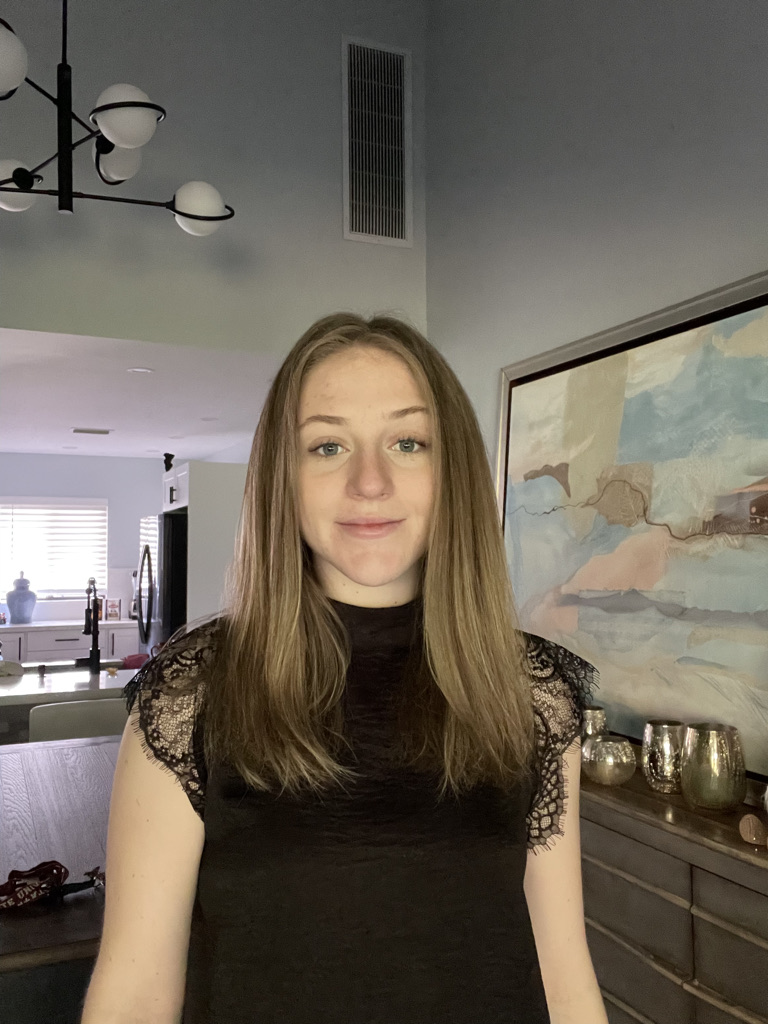
BIO
I am from Naples Florida and currently my research is focused on clinical uses of mindfulness and therapeutic alliance. In the future i hope to continue research and look into mindfulness's influence on juveniles, therapeutic rupture, dialectical behavioral therapy, and other clinical therapeutic techniques. As a career goal i hope to continue my education to get my master's in mental health counseling and work with juveniles in a community crisis unit and outpatient therapy programs.
Cultivating Therapeutic Relationship Among Counselors-In-Training: Impact of Mindfulness
Authors: Mackenzie Barrett, Dr. Shengli DongStudent Major: Psychology
Mentor: Dr. Shengli Dong
Mentor's Department: Department of Educational Psychology and Learning Systems Mentor's College: College of Education Co-Presenters: Barbara Brannon
Abstract
Therapeutic alliance has been identified as an essential factor in good therapeutic and treatment outcomes, although specific traits that lead to these benefits are still being examined. This research aims to analyze the impacts of using mindfulness techniques in counselors-in-training and how they influence the therapeutic alliance. Our comprehensive literature review analyses prior research on therapeutic alliance and mindfulness to investigate how mindfulness can impact the development, strength, and nature of the working alliance. Mindfulness techniques are rooted in Buddhist culture, and despite its longevity, the use of mindfulness-based intervention and tactics are fairly new for western clinical use. Research suggests further analysis of mindfulness techniques is warranted to gain a better understanding of its potential influences, specifically in the therapist-client relationship. The literature suggests that traits closely relating to mindfulness techniques such as empathy and awareness may have a positive impact on cultivating a better therapeutic alliance or relationship.
Keywords: mindfulness, therapeutic alliance, therapeutic relationship
22nd annual Undergraduate Research Symposium
Audrey Brenner Poster Session 5: 1:30 - 2:15/Poster #8
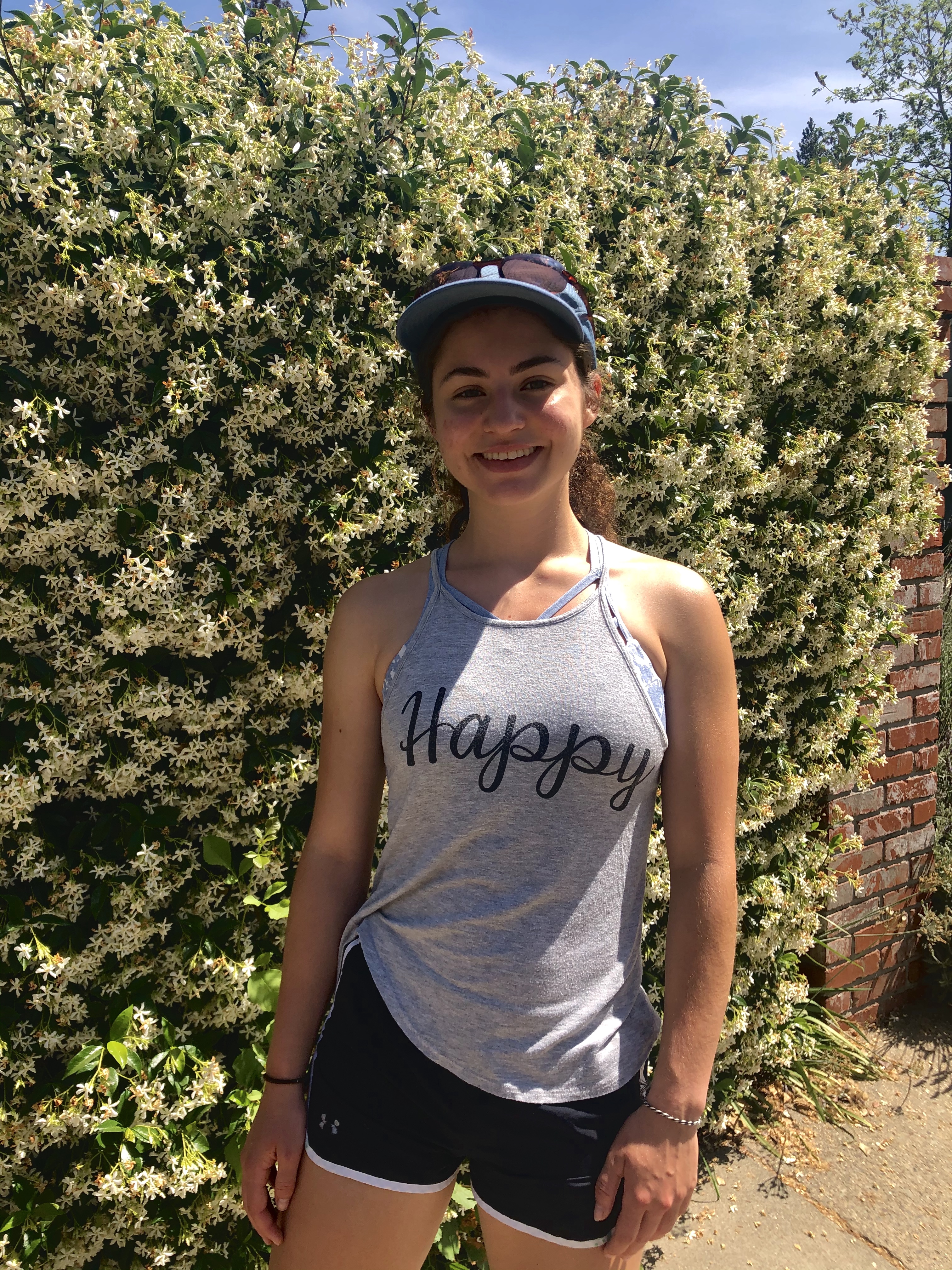
BIO
I am a first year student originally from Sacramento, California. My academic interests include nutrition, exercise science, physical therapy, and tourism. My biggest academic goal is to receive a Doctorate in Physical Therapy. I also hope to study abroad in Spain during my undergraduate education. My research interests primarily involve finding ways to improve human health using diet and physical exercise, rather than medications and surgery. I am passionate about promoting a healthy lifestyle for everyone, regardless of income. Additionally, I believe that nutrition is an understudied topic, and that the key to disease prevention may lie in changes to the human diet.
Out of the classroom, I have worked as a white water rafting guide, rock climbing guide, youth rock climbing coach, and canyoneering guide. Hobbies of mine include cross-country running, rock climbing, reading, and painting. At FSU, I am an active member of the Student Dietetic Association, Healthy Noles (a branch of CHAW focusing on educating FSU students about health and wellness), and the FSU Climbing Club.
Preparing for the Next Pandemic
Authors: Audrey Brenner, Dr. Joseph GrzywaczStudent Major: Dietetics, pre-physical therapy
Mentor: Dr. Joseph Grzywacz
Mentor's Department: College of Health and Human Sciences Mentor's College: Florida State University Co-Presenters: Anisa Gonzalez, Fiona Giardino, Ellie Giardino, Alexander Sarmiento
Abstract
Preparing for the Next Pandemic is a public health research project through UROP. This project is being carried out by researcher Joseph Grzywacz along with an additional five undergraduate research students. The purpose of this research is minimize the elevated burden of disease and death in future pandemics. The specific aim of this research is to lower disease and death in marginalized communities, more specifically the farmworker community. This project is a joint effort between the National Center for Farmworker Health and the US Centers for Disease Control.
The farming community suffered greatly when Covid-19 hit in 2020, as they were not prepared or enabled to fight the virus. The goal of our study is to help these rural communities by finding methods that will increase disease prevention and improve disease response. By doing so, we can suggest policies that may be adopted by farming communities to prevent and successfully fight the next pandemic. Through a comprehensive literary review of 33 articles, we determined what factors affect the community response in the event of a pandemic. From our analysis of these studies, we created interview guides in order to interview leaders of organizations that protect agricultural laborers. Using the information given to us by these individuals, we will hypothesize factors that will increase disease prevention and produce possible policies that may improve farm worker safety in the future. Our intention is that through this study, health officials will implement new health policies that benefit Latino farmers in the United States.
Keywords: Disease-prevention, farmworker, policy
22nd annual Undergraduate Research Symposium
Katherine Henning Poster Session 6: 2:30-3:15/Poster #63
BIO
My name is Katherine and I’m a sophomore from right here in Tallahassee. I am very passionate about our environment and enjoy researching it just as much as I do spending time in it. I plan to dedicate my professional career to conservation and protection via continued research. I plan to continue on with my education and hopefully get my Ph.D. I am especially drawn to the research of marine environments and hydrogeology. I also chose to major in environmental science because I believe that solving environmental issues is good for everything on the planet - people, plants, animals- and can have a much wider impact than we expect.
Effects of a cellulose mill on the Fenholloway estuary and coastal area
Authors: Katherine Henning, Jeroen Ingels (PhD)Student Major: Environmental Science (BS)
Mentor: Jeroen Ingels (PhD)
Mentor's Department: FSU Coastal and Marine Laboratory Mentor's College: Florida State University Co-Presenters:
Abstract
The Fenholloway river is in northern Florida and has been polluted by a cellulose mill. The recent relocation of the mill’s wastewater pipeline to a location downriver may have adverse effects on the ecological health of the Fenholloway river estuary and the adjacent Gulf of Mexico. This study aims to assess meiofauna community abundance and biomass using nematodes and copepods. These organisms are known to be indicators of the ecological quality of sedimentary environments while playing key roles in ecosystem processes and functions. The study of these organisms investigates the ecological status of the Fenholloway estuary and provides insights into the effects of the relocation of the point discharge location on the environment when compared to samples taken before the pipeline installment.
Sediment samples were taken from 11 locations in the Fenholloway river, including near the new point discharge location, and further out towards the Gulf of Mexico. Sediment samples were also taken in the neighboring, unpolluted Econfina river following the same sampling scheme. The Econfina river system serves as a control for the Fenholloway due to similarities and proximity. The sediment samples were washed over stacked 500 µm and 63 µm sieves to separate the meiofauna. Nematodes and copepods were extracted using density separation, counted, and mounted on slides for measuring and biomass calculations.
Results for this study have not yet been obtained, so I am unable to conclude if the new location of the wastewater pipeline has had adverse effects on the health of the Fenholloway river estuary.
Keywords: environment, pollution, river
22nd annual Undergraduate Research Symposium
Hannah Raisner Poster Session 5: 1:30-2:15/Poster #41
BIO
I am from Jacksonville, Florida and studying Political Science here at Florida State University.
Dante Today: Citings and Sightings of Dante's Work in Contemporary Culture
Authors: Hannah Raisner, Dr. Elizabeth CoggeshallStudent Major: Political Science
Mentor: Dr. Elizabeth Coggeshall
Mentor's Department: Department of Modern Languages Mentor's College: Florida State University Co-Presenters:
Abstract
The Italian poet Dante Alighieri’s works have piqued the fascination of students and scholars for centuries. Dante Today creates an online space which serves to both examine the impact of Dante’s work on contemporary culture and provide academics and others with an easy way to access references to Dante. Anyone can submit a reference which will then be reviewed. When posted an necessary context is added, easing the experience of the reader. References are categorized and tagged based on the content, also improving reader experience. The site proves that references to Dante and his work are abundant in modern culture and will likely remain abundant for years to come.
Keywords: Dante, Archive, Blog
22nd annual Undergraduate Research Symposium
Danielle Stitzel Poster Session 5: 1:30 - 2:15/Poster #52

BIO
My name is Danielle Stitzel and I am from Kinnelon, New Jersey. I am a Sophomore at FSU and I major in Psychology. Eventually I would like to open my own private practice for clinical and counseling psychology. I take a special interest in abnormal psychology and disorders, such as Autism, Alzheimer's, and disorders related to anxiety and depression.
Examining Parent Concern after Autism Screening in Children under 24 Months
Authors: Danielle Stitzel, Jessica HookerStudent Major: Psychology
Mentor: Jessica Hooker
Mentor's Department: Medicine Mentor's College: Florida State University Co-Presenters: Amanda Nunez, Rachel Peters, Megan Michaels
Abstract
Introduction: As the prevalence of children with Autism Spectrum Disorder (ASD) continues to rise, primary care providers play a key role in early identification and intervention. Yet, the USPSTF does not recommend screening without parent-reported concerns. It is important to examine the types of parent concerns reported, as well as the differences between the number and types of concerns across children with different diagnostic outcomes, to determine the potential effectiveness of this approach. Methods: This study examined a sample of 549 children who were screened for autism or communication delay between 12 and 26 months of age. Parents completed the Early Screening for Autism and Communication disorders (ESAC) and reported any concerns about their child’s development, which were coded for 16 types of concerns. Results: Most parents of children that were concerned about the expressive communication and development of their child. Most of the parents of children who were diagnosed with autism did not report a specific concern of Autism or concerns about the diagnostic features and the time of screening. This study has important implications regarding the early identification of autism.
Keywords: Autism, Disorders, Screening, Children, Behaviors
22nd annual Undergraduate Research Symposium
Coralie Lans Poster Session 5: 1:30 - 2:15/Poster #50
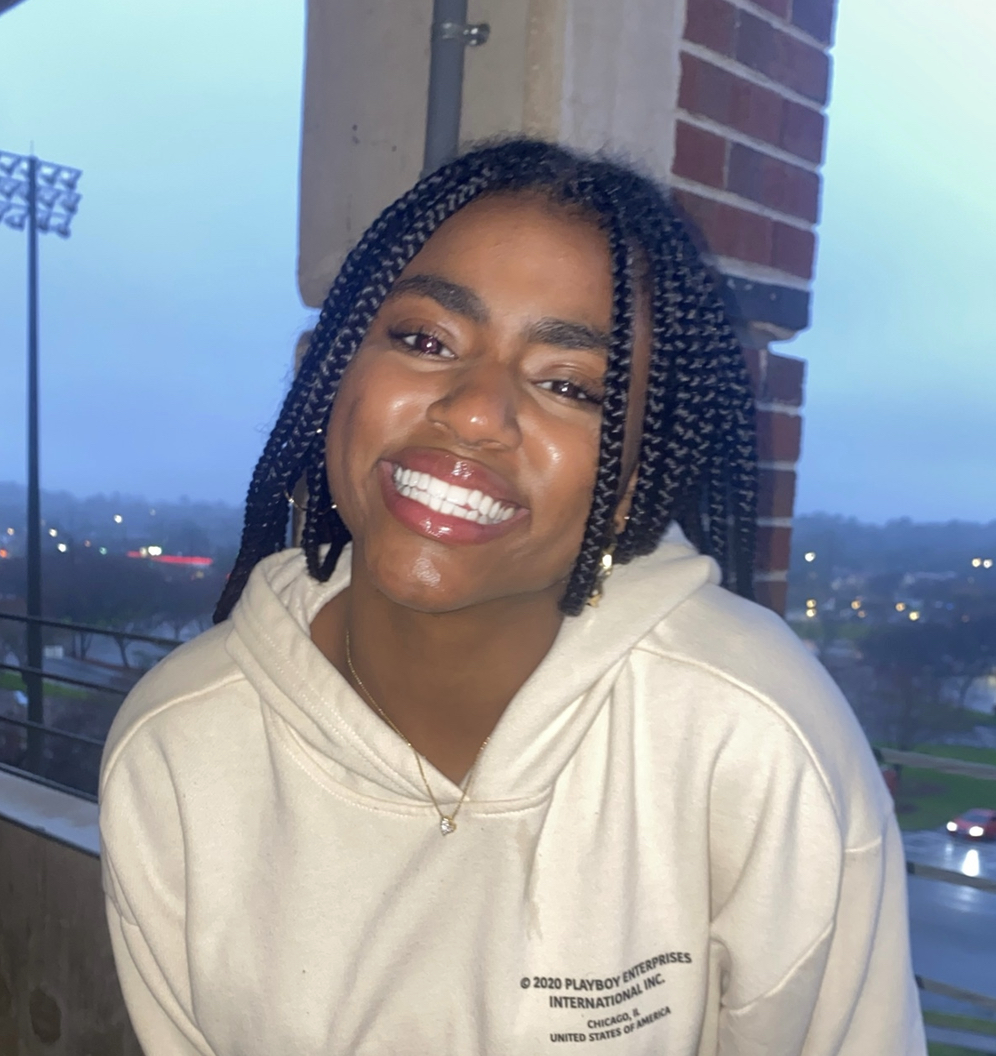
BIO
I am a second year student here at Florida State University. I'm from Fort Lauderdale, Florida and I am currently a Biochemistry major on a Pre-med track. I aspire to do research in both fields related and unrelated to my major in order to have a more well rounded education. I plan to become a Dermatologist one day and to have my own practice where I can continue to pursue research.
See it Through My Eyes: The comparison of teacher and student perspect
Authors: Coralie Lans, Jennifer SchellingerStudent Major: Biochemistry
Mentor: Jennifer Schellinger
Mentor's Department: Science Education Mentor's College: College of Education Co-Presenters: Fatima Verona, Cristina Murdock, Alexander Blanco
Abstract
The purpose of the Learning through Collaborative Design Professional Development (LCDPD) project is to support science teachers in meeting reform visions for science education (NGSS, 2013; NRC, 2012). One aspect of this vision is to engage students in productive science talk, talk that positions students to sensemake about scientific phenomenon and develop understandings of scientific concepts and practices. This study takes a deeper look into Mr. Jerry’s middle school biology class to better understand how Mr. Jerry and his students interpreted four focal lessons designed to engage them in productive talk. Through thematic coding, the first four authors identified aspects of students’ interpretations and feelings around these lessons and compared them with Mr. Jerry’s perspective of the same lessons. Through this analysis, we found Mr. Jerry and his students to have similar accounts of the importance of talk in the classroom, and that one lesson, the skin cancer lesson, was particularly impactful on students’ ideas about how science is done. Additionally, we found that Mr. Jerry and his students differed on how they saw the teacher role in talk, as Mr. Jerry saw himself as a facilitator and his students saw him in an authoritative “knowledge giver” role. These initial findings suggest the need for research to look deeper at the framing of the lesson and the role students’ perception plays in the larger ideas of “doing science” when engaging in talk.
Keywords: LCDPD Productive Talk
22nd annual Undergraduate Research Symposium
Ashley Holland Poster Session 5: 1:30 - 2:15/Poster #32
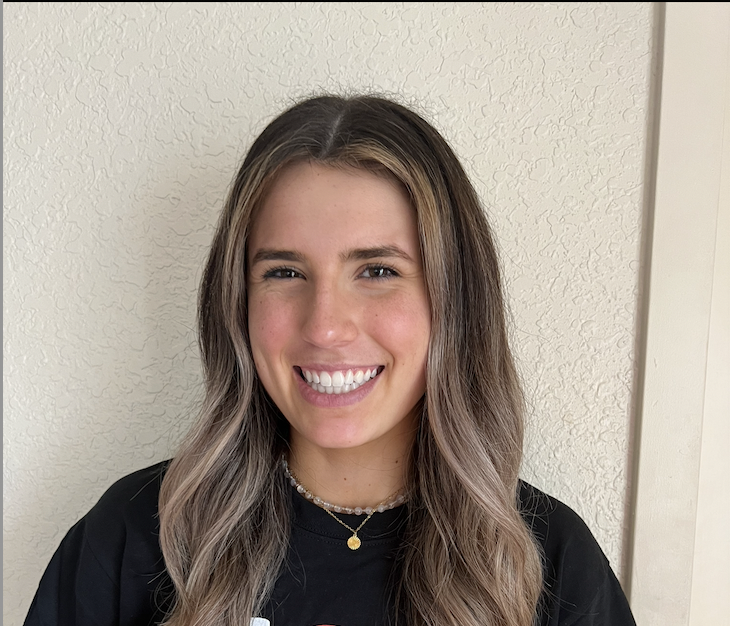
BIO
Hello! My name is Ashley Holland, and I’m currently a sophomore here at FSU! I am originally from Atlanta, Georgia. I am also a pre-med student, and I hope to go to medical school after I graduate! Here at FSU, I am involved in UROP and plan to continue research after this program as well!
Literature Review – Vascular and Metabolic Dysfunction
Authors: Ashley Holland, Cesar MezaStudent Major: Cell and Molecular Neuroscience
Mentor: Cesar Meza
Mentor's Department: Department of Nutrition, Food & Exercise Sciences Mentor's College: College of Health and Human Sciences Co-Presenters: Giovanna Cross, Riley Hart, Isabella Eaton
Abstract
Vascular and metabolic dysfunction both occur in obesity, and increased NADPH oxidative (Nox) activity has emerged as a key event in the development of cardiometabolic diseases. Data from the Hickner laboratory has identified that Nox is a major determinant of vascular complications in people with obesity. There is, however, limited research in humans that integrates the effects of Nox in vascular and metabolic tissues. Cell culture studies have identified Nox as a stimulus of lipolysis, which is the process of breaking down stored triglycerides and releasing them into the bloodstream. The overall goal of this study is to understand if Nox in adipose tissue and the adipose vasculature contribute to elevated blood glucose profiles through heightened rates of lipolysis and subsequent increased gluconeogenesis and hepatic glucose output.
Keywords: vascular, metabolic, NOX, obesity, lipolysis
22nd annual Undergraduate Research Symposium
William Lleonart Poster Session 5: 1:30 - 2:15/Poster #46
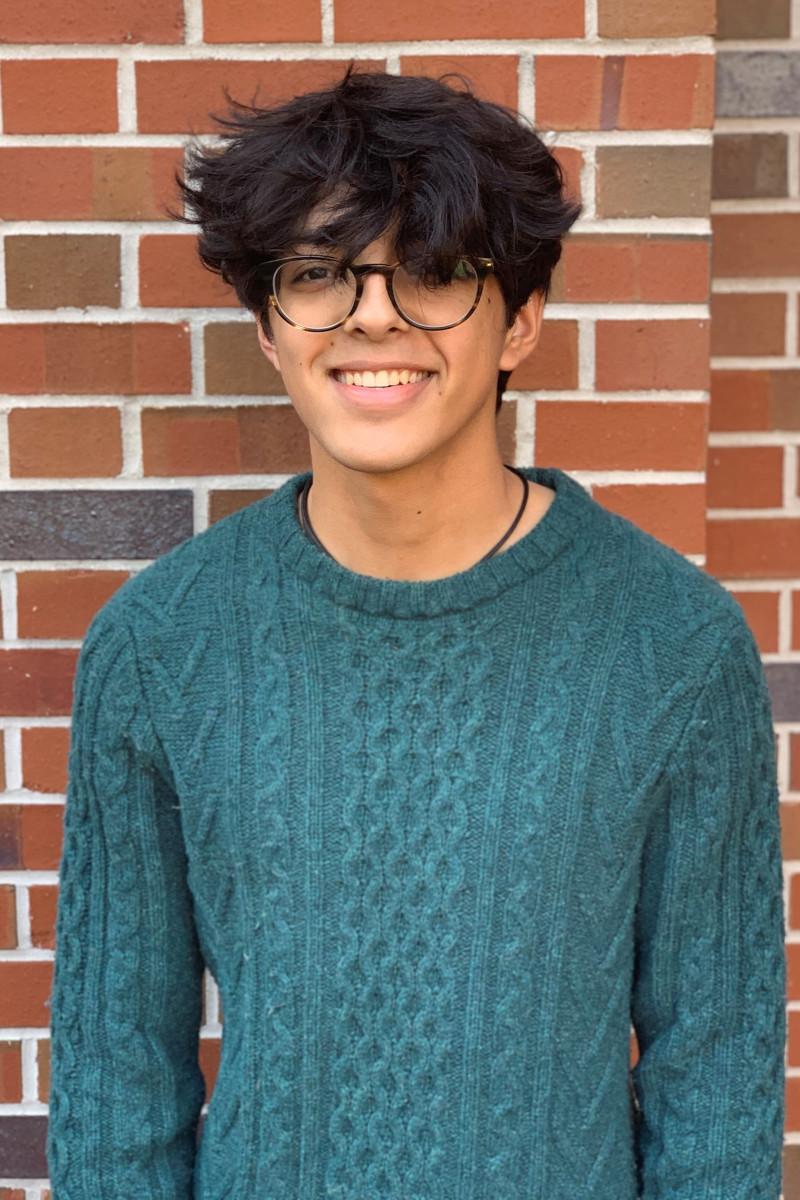
BIO
I’m from Miami, FL. My career goals are unknown to me at the moment, but as soon as I figure that out I’ll be sure to update this.
Investigating Skills and Knowledge Required to Develop Mobile Performance Support Systems (MPSS) in North American Companies
Authors: William Lleonart, Yao HuangStudent Major: Accounting
Mentor: Yao Huang
Mentor's Department: Instructional Systems and Learning Technologies Program Mentor's College: College of Education Co-Presenters: David Massengale
Abstract
Mobile Performance Support Systems (MPSS) are programs,devices, and resources implemented in companies and organizations to improve job performance. In this
project, we conducted qualitative data
analysis with five individual interviews with NVivo12. The five interviewees were: a training coordinator from the U.S. Coast Guard, an instructional designer from a large international medical software and devices company, the Senior Manager of Learning Innovation from a home improvement business, a senior eLearning developer and project manager from an international restaurant franchise, and an instructional manager from a pharmaceutical manufacturing company. We reviewed transcripts, generated codes, and grouped codes into themes. While coding, we followed the research question, “What skills and knowledge are needed to design and develop MPSS in North American companies and organizations?” We each coded independently and developedcodebooks with code names, criteria, and
examples. Then we compared the similarities and discussed the differences in the codes. Finally, we developed themes and identified thepreliminary results about skills and
knowledge needed to design and develop an MPSS.
Keywords: Mobile Performance Support System
22nd annual Undergraduate Research Symposium
Alexander Blanco Poster Session 6: 2:30 - 3:15/Poster #50
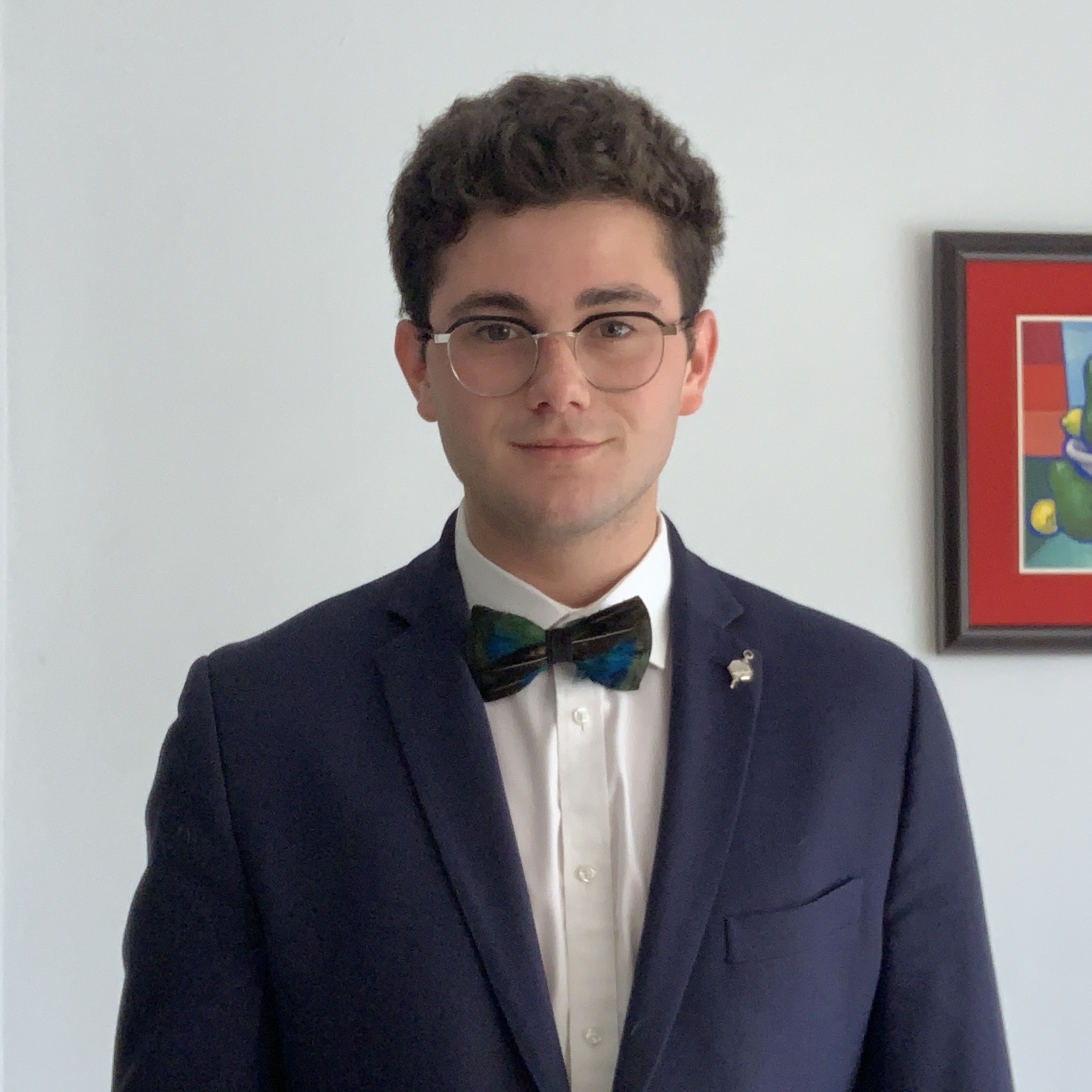
BIO
Alexander Blanco is a Cuban American from Miami Florida. He graduated from Belen Jesuit Preparatory School in 2020 and has since attended Florida State University. He is majoring in Cell and Molecular Neuroscience with the hopes of one day becoming a doctor. Alexander is interested in the biological sciences as well as psychology in an effort to understand our society through as many perspectives as possible.
See it Through My Eyes: The comparison of teacher and student perspective on productive science talk and “doing science” in the classroom.
Authors: Alexander Blanco, Jennifer SchellingerStudent Major: Cell and Molecular Neuroscience
Mentor: Jennifer Schellinger
Mentor's Department: School of teacher education Mentor's College: The College of Education Co-Presenters: Cristina Murdock
Abstract
The purpose of the Learning through Collaborative Design Professional Development (LCDPD) project is to support science teachers in meeting reform visions for science education (NGSS, 2013; NRC, 2012). One aspect of this vision is to engage students in productive science talk, talk that positions students to sensemake about scientific phenomenon and develop understandings of scientific concepts and practices. This study takes a deeper look into Mr. Jerry’s middle school biology class to better understand how Mr. Jerry and his students interpreted four focal lessons designed to engage them in productive talk. Through thematic coding, the first four authors identified aspects of students’ interpretations and feelings around these lessons and compared them with Mr. Jerry’s perspective of the same lessons. Through this analysis, we found Mr. Jerry and his students to have similar accounts of the importance of talk in the classroom, and that one lesson, the skin cancer lesson, was particularly impactful on students’ ideas about how science is done. Additionally, we found that Mr. Jerry and his students differed on how they saw the teacher role in talk, as Mr. Jerry saw himself as a facilitator and his students saw him in an authoritative “knowledge giver” role. These initial findings suggest the need for research to look deeper at the framing of the lesson and the role students’ perception plays in the larger ideas of “doing science” when engaging in talk.
Keywords: LCDPD, Education, Science, Talk, Perspective
22nd annual Undergraduate Research Symposium
Luke Bilsborough Poster Session 3: 11:00- 11:45/Poster #36
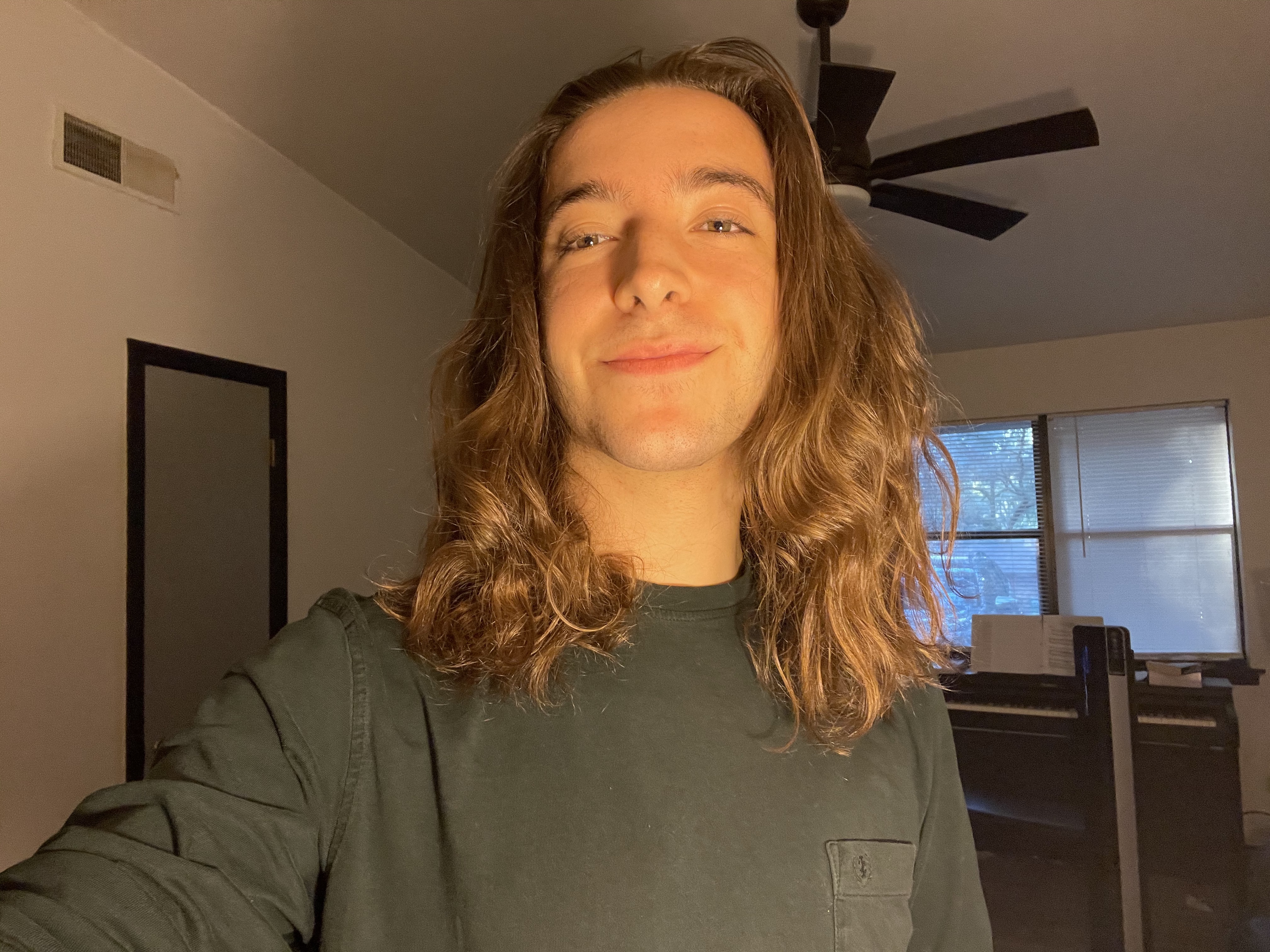
BIO
Luke is a junior History major at FSU, and is very excited to be working on this project. He enjoys reading more than writing, but writing more than creative design, which is why he would like to thank his project partner Adrian Pineda for assuming the helm in designing the poster. The Classics department has been a happy second residence for him, and between Catullus and Ovid his ancient literary and historical knowledge has been well supplemented. Recently, however, South Asian history has piqued his interest, which is probably where he will focus for the remainder of his time at Florida State University. He would lastly like to offer one final token of gratitude to Brandon Bernick for selecting him as a research assistant on his masterly masters-become-doctoral dissertation.
The Enemy of My Enemy Is My Friend
Authors: Luke Bilsborough, Brandon BernickStudent Major: History
Mentor: Brandon Bernick
Mentor's Department: History Mentor's College: College of Arts and Sciences Co-Presenters: Adrian Pineda
Abstract
Following WWII, the United States and Western Germany, under the impetus of Captain John R. Boker and former Wehrmacht Major General Reinhard Gehlen, initiated an extensive espionage operation throughout the Eastern Bloc. “Operation Rusty” played a fundamental role in early Cold War intelligence acquisition. It was the primary source of American information on the Soviet Union. However, when the Soviet Union successfully infiltrated Operation Rusty by turning a select number of its agents, it likely fed false information to the Americans and the Germans. This project seeks to answer three major questions: 1. What connection is there between Gehlen’s appointment as the Chief of the German Wehrmacht Fremde Heere Ost intelligence section and a marked increase in mass murder under the Holocaust? 2. How did successful Soviet corruption of Operation Rusty agents impact the functioning of the operation? 3. How did this corrupted information impact American Cold War domestic and foreign policy?
Keywords: Cold War, Espionage, CIA, Gehlen, Intelligence
22nd annual Undergraduate Research Symposium
Kiyanna Caggiano Poster Session 5: 1:30 - 2:15/Poster #31
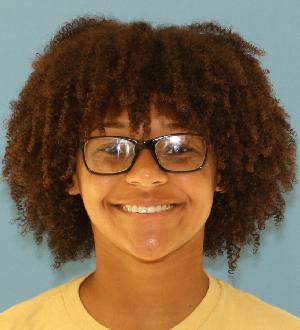
BIO
I am currently a student majoring in Family and Child Science and Psychology. One of my passions involves social justice and raising awareness of the topic my summer experience teaching students in South Korea led me to discover this. I hope to become an interior architect and plan to attend FSU to achieve getting a master's degree. I am a member of the global scholar's program which allowed me to get certified in TEFL (teaching English as a foreign language) which is often used to teach abroad. I currently intern with a local interior architecture and design company and look forward to connecting people and spaces.
Analyzing the success of ESL students in the United States
Authors: Kiyanna Caggiano, Warren OliverStudent Major: Family and Child Science, Psychology
Mentor: Warren Oliver
Mentor's Department: CRE Mentor's College: CRE Co-Presenters:
Abstract
As a member of the Global Scholars Program, we participate in a summer experience interning with a social impact program or student-led research regarding a social issue. During my experience, I received my TEFL certification and tutored children in South Korea and Argentina. These ESL students were extremely successful and it led to my interest in analyzing how ESL students in my country fair and ways to improve their success. My experience was much different than my counterparts in that I did not solely conduct research but instead a meta-analysis with regards to my experience.
Keywords: ESL students, TEFL program, Social Awareness
22nd annual Undergraduate Research Symposium
Nelson Vincent Poster Session 3: 11:00- 11:45/Poster #66
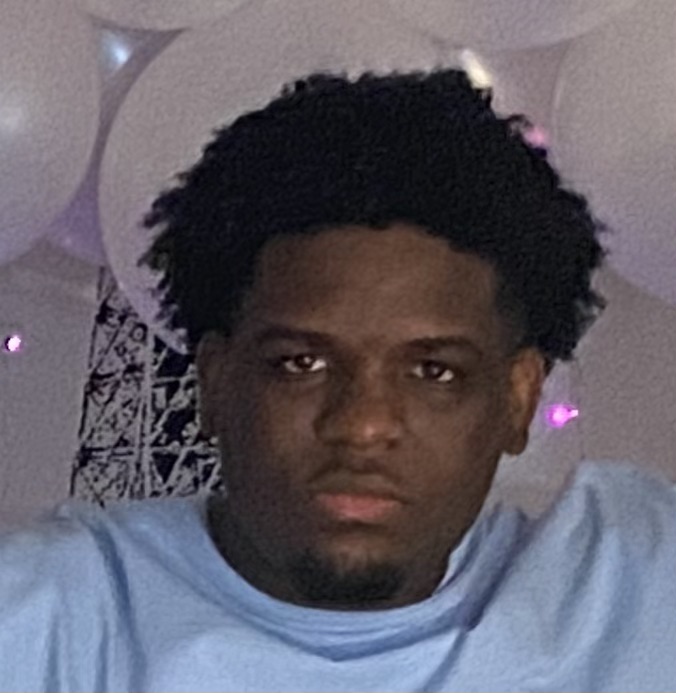
BIO
My name is Nelson Vincent. I am a transfer student that wanted to began FSU doing research. I always had a love for research and wanted to study abnormal psychology. I wanted know about ADHD and more differences in brain development. The study I am apart of is done on reading in college students and children.
Adult Performance on Set for Variability and Phonological Awareness
Authors: Nelson Vincent, Valeria RigobonStudent Major: Psychology
Mentor: Valeria Rigobon
Mentor's Department: Psychology Mentor's College: College of Arts and Sciences Co-Presenters:
Abstract
English is a complex language to learn, especially with so many irregularities in letter-sound relationships. In this study, we tested English-speaking participants on their skills in phonological awareness (PA) and set for variability (SfV).
Keywords: Set for variability
22nd annual Undergraduate Research Symposium
Kristin Javate Poster Session 4: 12:30 - 1:15/Poster #58
BIO
Kristin Javate is a current second year student studying Biology along with minors in Chemistry and Spanish at Florida State University. St. Petersburg, Florida is where she calls home. She is currently following a pre-med track, but also has a love and passion for the arts. She is a ballet dancer, currently dancing as a member with the Tallahassee Ballet. Her interests in the arts has led her to become interested in following the mental health stressors circulating the dance community. Joining Casey Copeland's research team and project has allowed her to delve deeper into this topic of mental health in the dance community and to learn more about the research process as a whole.
The Slow Regard of Silent Things: Building Mental and Emotional Resilience for Dancers
Authors: Kristin Javate, Casey CopelandStudent Major: Biology
Mentor: Casey Copeland
Mentor's Department: School of Dance Mentor's College: School of Dance Co-Presenters: Shaniyah Jennings
Abstract
To many, the purpose of dance science is to alleviate physical health stressors for dancers. However, more recently, mental health stressors have come to light. With the rise of COVID-19 bringing anxiety and depression, new levels of awareness of and emphasis on mental health have been circulating among the dance community. Authors such as Kathleen McGuire Gains with “Minding the Gap,” currently in pilot testing at Point Park University, and Lynda Mainwaring’s program, “The Delivery of a Short-Term Psychological Skills Training Program to College Dance Students,” conducted in 2019, help bring dancers’ stories forward in quantitative research and qualitative anecdotes. This study will use the RAND Mental Health Inventory to survey university level dance majors' students at Florida State University School of Dance using a convenience sampling method. This allows data collection from a sample reflective of the broader population of undergraduate dance majors in BFA programs. The Help4Dancers app, developed by British psychotherapist, Terry Hyde: MA MBACP, will be implemented with a focus group of 6-12 dancers. The intervention will be assessed using three methods, a knowledge base quiz, the RAND Survey, and behavioral observation to determine artistic and academic performance. From this, a baseline can be established confirming the existence of mental health stressors within the School of Dance. Ultimately, the purpose of this study is to document the prevalence of mental health stressors within the Florida State University School of Dance and assess an intervention targeted at building mental and emotional resilience through increasing awareness.
Keywords: Mental Health, Dance, Awareness
22nd annual Undergraduate Research Symposium
William (Grayson preferred) Leal Poster Session 6: 2:30-3:15/Poster #13
BIO
I'm a lifetime Floridian who was born and raised in Tampa. Most of my family have come through FSU, and I am proud to continue that legacy as an Economics major, which I will soon graduate with. Something I enjoy in my downtime is video games, especially games that require strategic thinking and planning. It occurred to me one day, that many of these games have an economic system. Something I have learned from easily a dozen different games is that investing in research and building up industry is essential to keeping your empire running smoothly. So, for this project, I wanted to see how reliable and accurate some of my favorite games got their depictions of Economic concepts, modifiers, and determiners.
Can Video Games Teach Economic Concepts?
Authors: William (Grayson preferred) Leal, Dr. Crystal J. TaylorStudent Major: Economics
Mentor: Dr. Crystal J. Taylor
Mentor's Department: DeVoe L Moore Center Mentor's College: College of Social Sciences and Public Policy Co-Presenters:
Abstract
With the popularity of gaming on the rise, scholars have been examining the use of educational video games as an instructional tool to teach economic concepts and how this compares to traditional classroom methods. If educational video games are useful to facilitate learning, how well, if at all, could non-educational games based on economic concepts serve as instructional tools? In particular, this research asks: What elements of 4X strategy games stimulate economic understanding? The researcher created and deployed a survey to discover what core economic, and economic adjacent factors were viewed as the most important, and how well certain games depicted them. The survey covered questions pertaining to specific games (Civilization V, Hearts of Iron IV, Stellaris, Endless Space 2), economic concepts, and demographic characteristics. Preliminary results from 18 respondents revealed the following: most respondents were not familiar at all with most of the games in question. But those who were provided some insight into what they perceived the games they did know well. These areas generally pertained to trade and industry, with a lower emphasis on public opinion. In terms of educational policy recommendations, this study suggests that there is potential for these types of games to educate individuals, especially in the areas of trade, industry, and currency, with a strong emphasis on agriculture, and a lesser one on public opinion. Future research should examine these patterns in greater detail on a larger scale, thereby giving more credence to the theory that these games are viable for educational use.
Keywords: Video Games Economics Education
22nd annual Undergraduate Research Symposium
Otufa Noor Poster Session 2: 10:00 - 10:45/Poster #42

BIO
Hello. My name is Otufa Noor. I am a freshman here at FSU and excited to be a part of the UROP Program this year. I was born in Kashmir but was brought up in Tallahassee for more than 10 years. I am majoring in Cell and Molecular Neuroscience on a pre-med track with hopes of getting into FSU Medical School (due to their unique and direct approach towards rural healthcare). I plan on working as a doctor in rural areas and treating marginalized communities as a way of giving back to my community.
FSU-FAMU Global Health Collaboration Project: Mental Health Team
Authors: Otufa Noor, Dr. Sunny NarayananStudent Major: Cell and Molecular Neuroscience
Mentor: Dr. Sunny Narayanan
Mentor's Department: FSU Medical School Mentor's College: FSU Co-Presenters: Jordan Neltner
Abstract
The purpose of the Global Health Collaboration Project is to develop culturally acceptable healthcare practices and
education to rural communities in Honduras.
• The objective of the mental health team is to collect
information regarding the prevalence of symptoms of
anxiety in rural communities in Honduras and to increase
awareness of symptoms of anxiety among village
healthcare workers.
• The data will be collected using a survey tool after
receiving an Institutional Review Board (IRB) approval
in the US and an Ethics Committee Approval in
Honduras.
• Healthcare in rural communities in Honduras are often
underfunded and overlooked.
• In addition, mental health is heavily stigmatized in
Honduras.
• For these reasons, it is crucial that research is conducted,
and action is taken to help those in rural communities
receive the care they need and deserve.
Keywords: Mental Health, Anxiety, Honduras
22nd annual Undergraduate Research Symposium
Lauren Nix Poster Session 4: 12:30 - 1:15/Poster #19

BIO
Science has captivated me from a young age; I have always loved to learn more about the environment and the human experience within it. I am originally from Niceville, Florida, and there I have past research experience with marine biology in the NaGISA program, and in physics with biomimicry of the Saharan Silver Ant. My hobbies are watercolor painting, running, and teaching people about the environment. Someday I hope to merge Neuroscience research with current understandings of mycology, and study advanced mycological communications.
Thinking About Math
Authors: Lauren Nix, David William BraithwaiteStudent Major: Biological Science
Mentor: David William Braithwaite
Mentor's Department: Psychology Mentor's College: College of Arts and Sciences Co-Presenters:
Abstract
Performance in adults is highly dependent on the unique processes that each individual takes to reach their answer. In order to answer the question of what makes an effective performance in adults, participants perform two tasks; the Geometric Proof Task (GPT) and the Probabilistic Reasoning Task (PRS).The study type itself is observational, and relies on auditory recordings and transcription processes in order to yield the necessary input into the participants mathematical reasoning.
Keywords: Reasoning, Geometry, Geometry Proofs, Cognitive Development
22nd annual Undergraduate Research Symposium
Hima Humeda Poster Session 4: 12:30 - 1:15/Poster #59
BIO
My name is Hima Humeda, and I am currently a freshman Biology Major on the pre-medical track. I am from Pensacola, Florida. I am particularly interested in research pertaining to neuroscience, and thus over this past year, I investigated Fragile X Syndrome and its influence on tonotopic precision.
Examining The Influence of Fragile X Syndrome on Tonotopic Precision in Mice
Authors: Hima Humeda, Dr. Yuan WangStudent Major: Biological Sciences
Mentor: Dr. Yuan Wang
Mentor's Department: Department of Biomedical Sciences Mentor's College: College of Medicine Co-Presenters:
Abstract
Fragile X Syndrome is a condition resulting from a genetic mutation of the FMR1 gene. As a result, learning disabilities, cognitive impairments, and other developmental illnesses may arise. However, auditory impairments are the most prevalent of symptoms that are associated with this mutation. The symptoms of Fragile X Syndrome are severely underexplored, thus through our research endeavors we are attempting to examine tonotopic precision in the auditory brainstem of mice that lack the FMR1 gene. We have hypothesized that the tonotopic precision is reduced in FMR1 Knockout mice, as that is consistent with the hyperactive nature of the organisms as well as the auditory phenotypes of this disease. In order to carry out this experiment, we have utilized c-fos, an early gene product that can be used as a marker of cell activation in order to anatomically map the response of sound stimulation. We then compared the c-fos band ratio of the knockout mice (those lacking an FMR1 gene) with the wildtypes (healthy mice) in order to determine if the tonotopic precision is reduced. The tonotopic precision is typically determined through extrapolating the ratio of the width and the ratio of the area of neuronal activity in particular regions while the mice are exposed to auditory stimulation. Our data so far concludes the fact tonotopic precision is significantly less in the knockout mice than in the wildtype mice. Such conclusions were shown when the mice were exposed to 8 kilohertz as well as 16 kilohertz of sound.
Keywords: Neuroscience, Fragile X Syndrome, Tonotopic Precision,
22nd annual Undergraduate Research Symposium
Malaika Whitmore Poster Session 3: 11:00- 11:45/Poster #35

BIO
I am a 3rd-year transfer student from Central Florida majoring in Biochemistry. With my degree I plan on going to dental school and have a career where I am able to inform and give care to people of all walks of life. I joined UROP to gain experience with research and get guidance from both those who are well in their field and to connect with peers hoping to do the same. By doing this research and being part of a team I was able to put myself out into a new environment and learn more about the history of Florida's capital and a great opportunity for me to broaden my knowledge. Looking into disciplines other than what my major focuses on helped benefit me in unforeseen ways, and having these chances given to me is something I am grateful for.
Historical Race Relations Tallahassee
Authors: Malaika Whitmore, Jennifer KoslowStudent Major: Biochemistry
Mentor: Jennifer Koslow
Mentor's Department: History Mentor's College: College of Arts and Sciences Co-Presenters:
Abstract
This project is part of an exhibition covering the racial relations in Tallahassee from before Tallahassee was the capital of Florida, to the Reconstruction Era and Civil Rights Movement, to the future of modern inequalities and desires to be better as a community. To gather this information a year was covered from FSU’s student newspaper, Florida Flambeau, and analyzing each issue for mentions of events of the current time as it related to the reality Tallahassee, FAMU, and FSU faced when it came to racial matters. For a major matter, they were entered into Omeka, an online publishing platform to create primary and secondary sources for students to have an online exhibition of how Florida State interacted with the changing world around it. This section of the project covered the year 1963, a time when communism was still seen as a major threat, and where debates of segregation and civil rights acts were affecting the daily lives of everyone.
Keywords: Race, Segregation, Tallahassee, History
